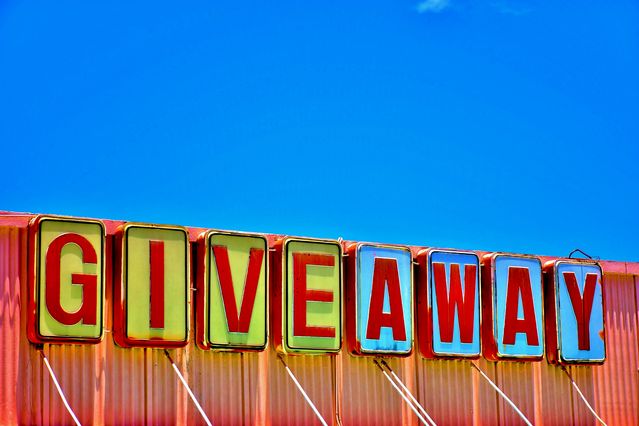Relationships
Why We Love Free Stuff Too Much
Free stuff is irresistible, but it often comes with hidden costs.
Posted August 8, 2019 Reviewed by Matt Huston
Who doesn’t like an unexpected gift, freebie or giveaway? I remember my own excitement at receiving vouchers for three *TOTALLY FREE* packs of sweets the other week. I was so excited, in fact, that I happily walked all across town to the one supermarket branch that accepted the voucher, only to find that they’d run out of all the good sweets flavors. The only eligible items left were sugar mice, flying saucers and mint humbugs. Grumbling, I picked a pack of each (I mean, they were free after all!), and headed for the tills. Passing several other aisles, I also loaded my basket with random items I remembered from my weekly groceries list. Since I’d gone out of my way to get there, I might as well get some shopping done! I eventually arrived home an hour later than normal with sweets I didn’t like and a bag full of shopping I could have gotten cheaper at the discount store across the road.

As illustrated above, human decision-makers are notoriously bad at withstanding the lure of giveaways, and examples of this are ubiquitous. At our annual university fair, I frequently observe students fighting over free pens and key rings. Similarly, a surprising number of people are happy to queue for hours only to receive a free slice of pizza or a donut. Related phenomena include the willingness of customers to subscribe to email lists in exchange for free access to online contents, their acceptance of obtrusive advertisements on free social media sites, and their readiness to share personal information for the small chance of winning a prize.

While it is perfectly rational to minimize personal spending, people appear to assign a disproportionately large value to items that come at zero financial cost. A famous choice experiment reported in Dan Ariely’s bestseller Predictably Irrational provided evidence for this surprising insight. When participants had to decide between spending 26 cents on a luxury Lindt chocolate truffle or spending one cent on a lower-quality Hershey’s chocolate kiss, the experimenters observed an even split of choices. Interestingly, however, this choice distribution changed dramatically when the prices of both items were lowered by one cent. While the price difference between the two chocolates remained identical, the lower-value option was suddenly completely free. In this new decision context, the vast majority of participants chose the free Hershey’s kiss, thus demonstrating the astonishing appeal of zero costs.
Why we love free stuff
Different reasons may account for people’s bias towards free items, but it is clear that emotions play a large role. A positive charge is experienced when offered an unexpected gift, and this sensation of joy is likely to impact heavily on the subsequent choice. Indeed, the chance of receiving a freebie may appear like a rare reward in a world where people frequently have to pay for visiting public toilets. Additionally, when offered a free item, people typically have lower expectations regarding its quality, and these lowered standards are easily surpassed. Going back to the initial example of my hunt for free sweets, I readily settled for flying saucers, which I’d have never chosen under normal circumstances. Because—after all—flying saucers were better than no sweets at all!
Hidden costs
Unfortunately, in their pursuit of zero-priced options, people often overlook a range of hidden costs. To use Dan Ariely’s words, “We often pay too much when we pay nothing.” This statement seems counterintuitive—surely it isn’t possible to overspend on free items?
However, most decision-makers fail to recognize that giveaways rarely come completely free. In most cases, there is a catch. Many marketing deals, for example, involve a minimum spending condition, which requires customers to purchase other items in order to become eligible for a gift. Other offers, including vouchers for specific supermarkets, are designed to lure you into different stores, expose you to new products and thereby entice you into buying additional items while you’re there. Finally, almost every freebie requires a personal investment. Sometimes a signature or email address is all that’s needed. In other cases, you may be required to queue or wait or participate in an activity such as watching commercial videos.
This leads to one crucial question: At what point do the hidden costs outweigh the objective value of the free item? And: Is it really rational to walk all across town only to receive a free pack of flying saucers (which, by the way, is still sitting in the kitchen cupboard)?
The point of this article is not to take away from the joy of receiving gifts, but to draw attention to hidden downsides, which may reduce their attractiveness. In some cases, queuing for a free item may well be worth the time. However, it’s usually better to make that choice consciously after considering the pros and cons. Personally, I enjoy free YouTube content like the fantastic yoga channel run by Patrick and Carling. Considering the amount of money I’d spend on a gym membership or exercise DVDs, I happily accept sitting through a few commercial videos.
What freebies can you recommend?


